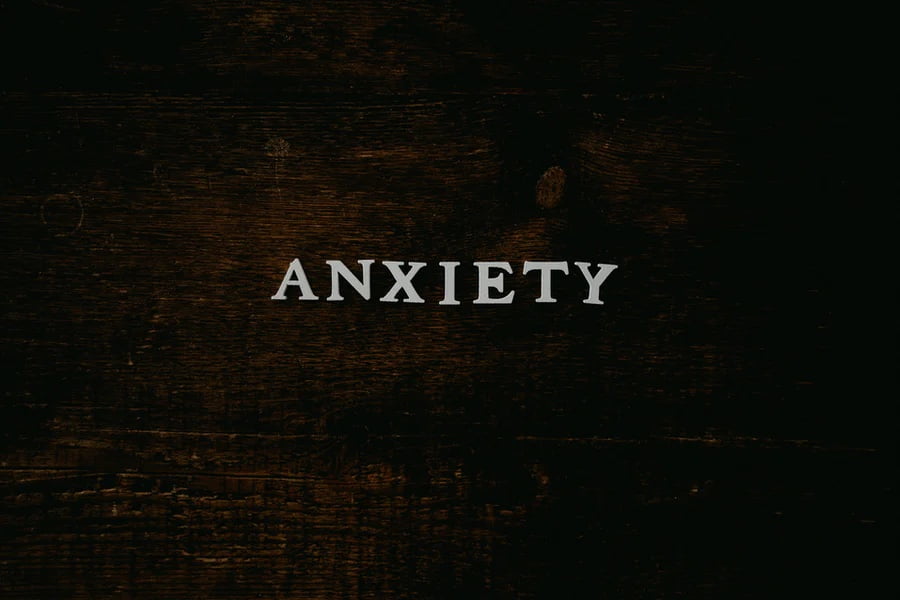
Are you anxious or worried all the time?
Do you feel overwhelmed by daily things? Are you feeling very alone as you struggle with uneven mood? Are you wondering what is wrong with you?
Anxiety can affect anyone at any time. In fact, anxiety is very common and about 8% of patients experience significantly anxious mood either occasionally or on a more regular basis. But just because it is common doesn’t mean you have to put up with it! This blog will discuss what anxiety really is and in Part 2, we will review some simple steps that can be implemented to manage it.
What is anxiety?
Fear is a natural response in the face of real danger, priming us for reactions that will allow our survival. Anxiety is very similar to fear and occurs when one worries or is fearsome about things.
We need a certain level of anxiety to function properly: it allows us to deal with daily things such as getting up to go to work on time, meet and manage everyday demands such as running for a train or crossing a busy road, and remain aware of what happens around us.
The problem is that in today’s world, anxiety has become pervasive and occurs in situations devoid of real danger. Someone with too much anxiety will worry very easily because they believe they are in danger. They don’t manage to distance themselves from the problem: this becomes overwhelming and feeds the anxious loop which creates very high levels of stress. This leads to a number of chemical reactions in the body and all of these impact overall health, both physically and mentally.
What is going on with anxiety?
The “fight or flight” response – Activating the sympathetic nervous system
In human evolution, when we are faced with danger, our body naturally releases a number of hormones such as adrenaline and cortisol to allow us to deal with threats and emergencies. This is essential for survival as it activates our sympathetic nervous system and allows a number of reactions to take place: our lungs expand to be able to take in more oxygen (increased rate and depth of breathing), our heart rate and blood pressure increase to pump more blood through the essential organs and muscles of our body, our digestive system slows down (we do not need to think about digestion when we are running for our lives!), our pupils dilate to allow increased vision to identify potential hidden dangers and our body releases hormones (adrenaline, noradrenaline and cortisol) so we can deal with the danger straightaway.
This is called the “fight or flight” response and happens automatically in our body, without us having control over it. It is a survival response and without it, we humans would not have been able to evolve, as we would not have been able to face dangers.
The “rest and digest” response – Activating the parasympathetic nervous system
In contrast, when we need to rest, we activate the parasympathetic nervous system that allows the following reactions to take place: our lungs relax, our heart rate and blood pressure drop, our muscles relax, our digestive system kicks in and our hormones settle. This is called the “rest and digest” response and it calms the body down.
Sympathetic versus parasympathetic nervous system
In essence, the sympathetic nervous system has been compared to the accelerator in a car, revving up to take us out of danger whilst the parasympathetic nervous system is the brakes, slowing us down when no danger is around.
With anxiety and ongoing worry, the sympathetic nervous system gets constantly activated: the accelerator is on all the time switching on our stress hormones on and on. This dysregulation causes oxidative stress all through the body triggering a number of symptoms that affect all bodily functions.
Symptoms of anxiety
There are numerous symptoms of anxiety depending on the levels experienced but common ones include:
- Palpitations or increased heart rate
- Sweating, trembling
- Shortness of breath
- Dizziness
- Blurred vision
- Chills or hot flushes
- Nausea
- Abdominal pain
- Tension: aches and muscle pain
- Chronic fatigue
- Focus and/or memory issues
- Headaches and/or migraines
Anxiety is often missed by healthcare professionals as some of the most common symptoms people with anxiety present with are digestive symptoms such as bloating, stomach cramps and/or pain, constipation or diarrhoea issues. This is due to the bi-directional communication between our gut and our brain (via the vagus nerve). As this link is often overlooked, people with anxiety are often given anti-depressants when their issues could stem from gut issues. This may be necessary but it is worth also looking at dietary changes as they can have a direct impact on our gut and the ways we manage our stress.
Ways to support your gut to support your brain, and thereby reduce your anxiety symptoms
In Part 2 of this blog, we will explore ways to strengthen and activate the parasympathetic nervous system both through dietary and lifestyle changes in order to reduce anxiety.
If you are suffering from anxiety or any of the symptoms mentioned in this blog, we recommend you seek advice from a healthcare professional / Nutritional Therapist. You can get in touch with me here or call me on 07788 444 199.